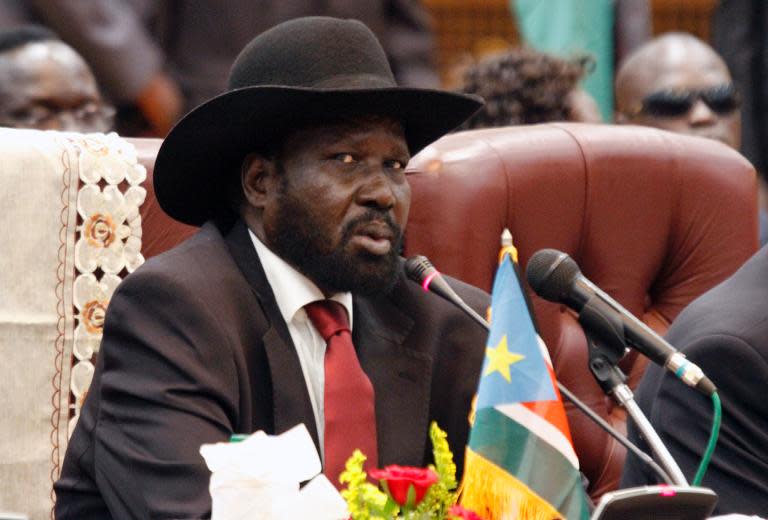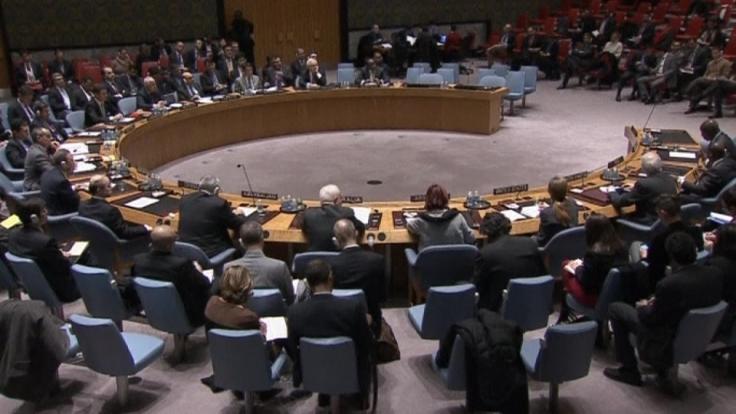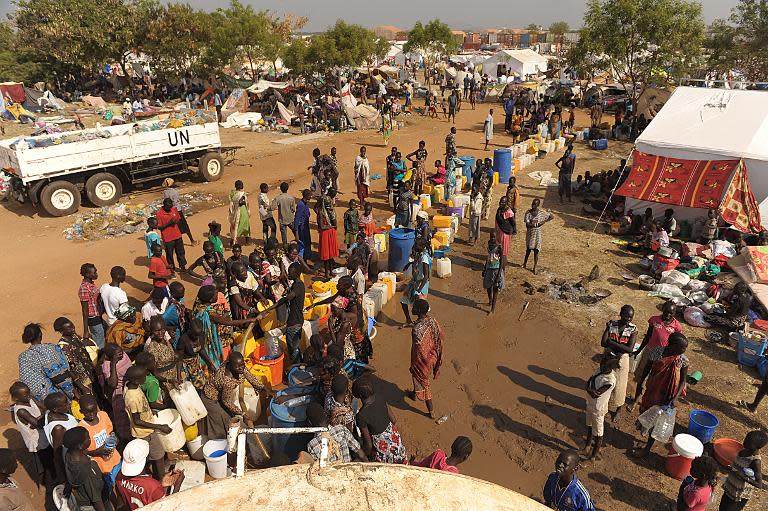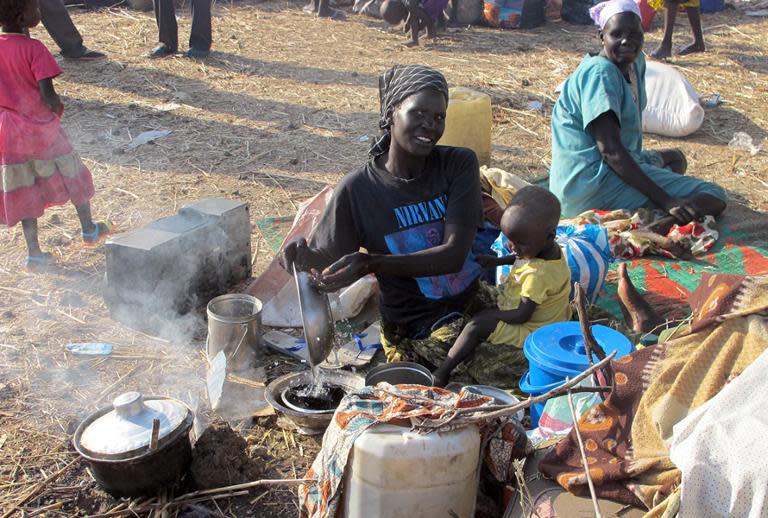
The government of South Sudan says it has agreed to an immediate end to fighting, a declaration which East African leaders consider to be a welcome development. Fighting continued on Friday in the oil town of Malakal, Upper Nile State
Reinforcements from the United Nations - 72 international police officers from the U.N. peacekeeping mission in Congo — arrived in Juba on Friday to help control civilians seeking shelter at UN compounds. The U.N. Security Council voted unanimously last week to temporarily beef up its peacekeeping force in South Sudan from about 8,000 troops and police to nearly 14,000 and send attack helicopters and other equipment to help protect civilians.

More than 121,600 who have reportedly fled their homes and at least 1,000 people have died in the fighting.
President Salva Kiir is engaged in a deadly power struggle with Mr Machar, his former vice-president, since accusing him of a coup attempt. Members of Mr Kiir's Dinka ethnic group and Mr Machar's Nuer community have both been targeted. The government has freed two of Mr Machar's allies from detention, partially meeting a rebel demand for the release of 11 coup plotters.

Speaking to the BBC by satellite phone, Machar said any cease-fire had to be negotiated by delegations from both sides and must include a way to monitor compliance. South Sudan's government also says it will not release any of Machar's imprisoned compatriots, a condition Machar has set for his presence at the negotiating table.
Mr Machar said the rebels controlled the whole of Unity
State, three-quarters of Upper Nile State and all of Jonglei State
except the state capital Bor.
He said he had spoken to the two detainees freed in Juba,
whom he named as his executive director, Deng Deng Akon, and former
Higher Education Minister Peter Adwok. East African regional leaders meeting in the Kenyan capital Nairobi said they would not accept a violent overthrow of the government and called on the warring sides to meet for talks within four days.
Machar denies there was a coup
attempt, and some officials with the ruling party insist violence broke
out when presidential guards from Kiir's majority Dinka tribe tried to
disarm guards from the Nuer ethnic group of Machar.

No comments:
Post a Comment